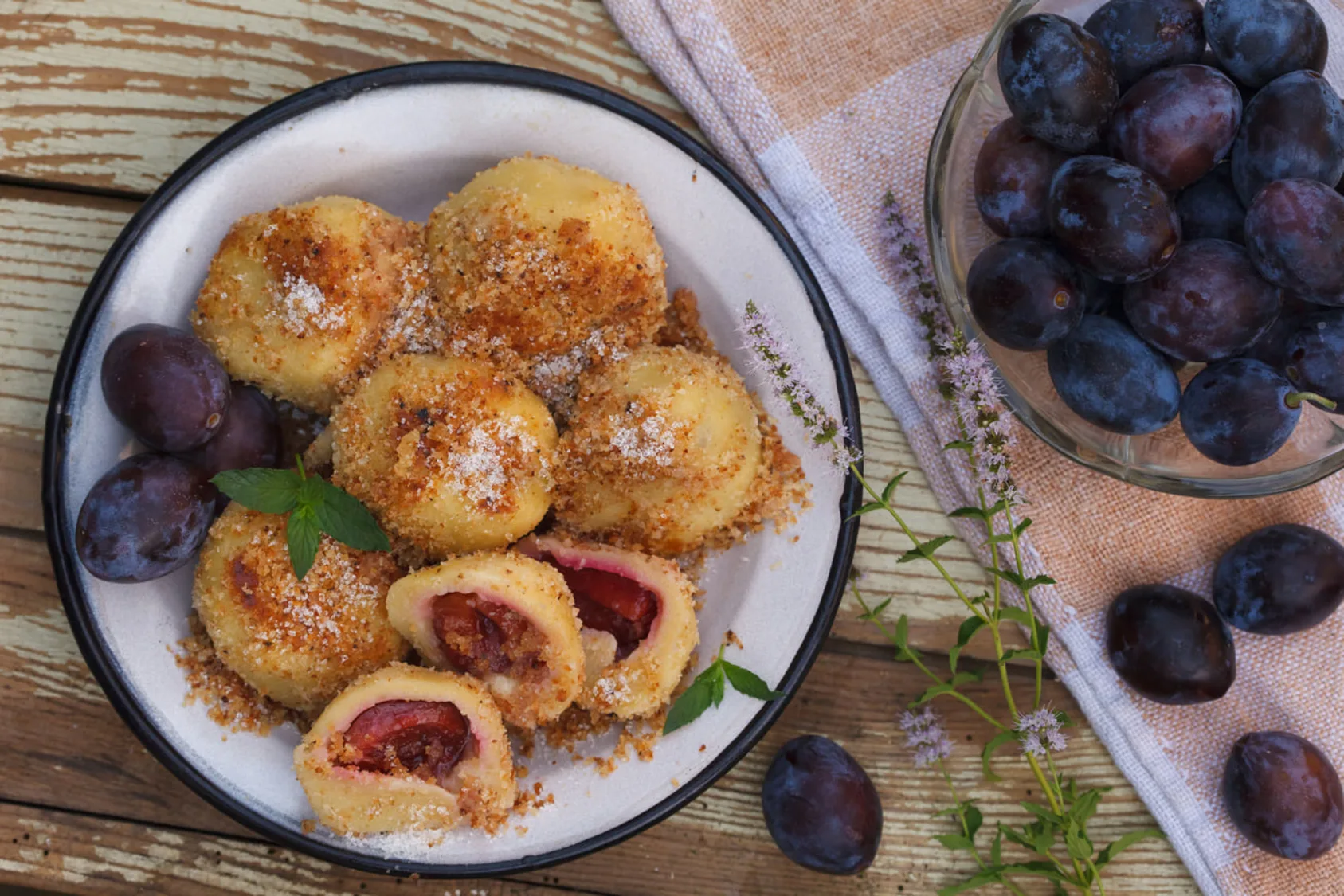
Szilvásgombóc
Sweet plum dumplings made from potato dough, coated in sweet breadcrumbs.
Ingredients
- •Potatoes
- •Flour
- •Eggs
- •Plums
- •Sugar
- •Breadcrumbs
- •Butter
- •Cinnamon
Instructions
Prepare dough
Mix mashed potatoes with flour and eggs
Make dumplings
Wrap plums in potato dough
Cook
Boil dumplings until they float
Prepare coating
Toast breadcrumbs in butter
Finish
Roll dumplings in sweet breadcrumbs
Szilvásgombóc, or Hungarian plum dumplings, are delightful sweet treats that perfectly showcase Hungary's love for combining fruits with hearty dough. These tennis ball-sized dumplings feature fresh plums wrapped in a tender potato-based dough, then coated in sweetened, buttery breadcrumbs. When bitten into, they reveal their treasure - a whole juicy plum that creates an exciting contrast of textures and flavors.
This beloved dessert has its roots in Central European cuisine, particularly popular in Hungary and neighboring countries like Austria and Romania. It emerged as a clever way to use late summer's plum harvest, though it has since become a year-round favorite that many Hungarian families prepare for special occasions and Sunday lunches.
Creating these dumplings requires some skill and patience. The dough, made from mashed potatoes, flour, and eggs, needs to be just right - too soft and it will fall apart during cooking, too firm and it becomes heavy. Each plum is carefully wrapped in a blanket of dough, making sure there are no gaps where water could seep in during cooking. The dumplings are then gently boiled until they float to the surface, signaling they're ready to be rolled in toasted, sweetened breadcrumbs.
While traditional Szilvásgombóc uses plums, modern variations embrace other fruits like apricots or cherries. Some families add a small sugar cube alongside the fruit to enhance sweetness, while others might include ground walnuts or poppy seeds in the breadcrumb coating. You might even find versions where the plums are replaced with chocolate or sweet cottage cheese filling.
In Hungary, these dumplings are typically served warm as a main course for lunch - yes, dessert for lunch is perfectly acceptable in Hungarian cuisine! They're often dusted with powdered sugar and sometimes served with a dollop of sour cream or vanilla sauce. During plum season in late summer, you'll find them featured prominently in restaurants and homes across the country.
While undeniably delicious, Szilvásgombóc is quite filling and relatively high in calories (about 200-250 calories per dumpling). The potato dough makes it more substantial than typical desserts, and the breadcrumb coating adds additional calories. However, the fruit filling provides some nutritional benefits, including fiber and vitamins. Those with gluten sensitivities should note that traditional recipes contain wheat flour, though gluten-free adaptations are possible using alternative flours.
